Search Results
Showing results 1 to 20 of 76

Walk On Water Bugs
Source Institutions
In this activity (on pages 29-35), learners examine water pollution and filtration.
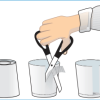
Cleaning Water with Dirt
Source Institutions
In this activity on page 7 of the PDF (Water in Our World), learners make their own water treatment systems for cleaning water.

Water Treatment
Source Institutions
Water treatment on a large scale enables the supply of clean drinking water to communities.

Disappearing Crystals
Source Institutions
Learners experiment with water gel crystals, or sodium polyacrylate crystals, which absorb hundreds of times their weight in water. When in pure water, the water gel crystals cannot be seen.

Who Dirtied The Water?
Source Institutions
In this activity, learners receive a labeled plastic film canister containing a material representing a pollutant (i.e. pencil shavings = a beaver's wood chips).

Heat Capacity: Can't Take the Heat?
Source Institutions
Why is ocean water sometimes the warmest when the average daily air temperature starts to drop? In this activity, learners explore the differing heat capacities of water and air using real data.
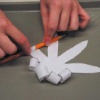
Moving On Up: Capillary Action II
Source Institutions
Learners explore capillary action in plants (such as plants ability to move water from roots to leaves) in an investigation called Paper Blooms.
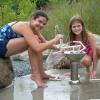
Measure the Speed of a Water Leak
Source Institutions
In this activity (page 2 of PDF under GPS: Glaciers Activity), learners will measure the rate at which water streams out of a leaky cup.
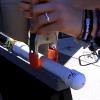
A Spray Spree
Source Institutions
In this activity, learners explore water pressure by conducting an experiment with a garden hose. Learners build a testing apparatus and create PVC nozzles with different sized holes.
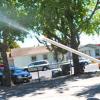
PVC Water Squirter
Source Institutions
In this activity, learners build a water squirter using a PVC pipe, dowel, and foam. This activity is great for the summer time and introduces learners to forces and water pressure.
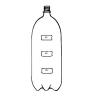
Under Pressure
Source Institutions
In this experiment, learners examine how pressure affects water flow. In small groups, learners work with water and a soda bottle, and then relate their findings to pressure in the deep ocean.
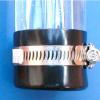
Free-Fall Bottles & Tubes
Source Institutions
In this physics activity, learners conduct two experiments to explore free-falling.
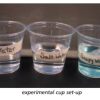
Let's Look at Water & the Scientific Method
Source Institutions
This activity has learners observe water and compare it to other liquids.
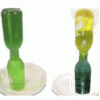
Inverted Bottles
Source Institutions
In this activity, learners investigate convection by using food coloring and water of different temperatures.
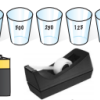
Water Wire: Electricity Flowing Through Water
Source Institutions
In this activity on page 10 of the PDF, learners detect the amount of energy that can flow through a sodium chloride electrolyte solution with a light sensor.
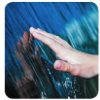
Below the Surface: Surface Tension II
Source Institutions
In this activity learners explore surface tension. Why are certain objects able to float on the surface of water and how do detergents break the surface tension of water?
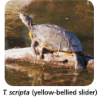
What's in the Water?: Biotic and Abiotic Elements in Aquatic Ecosystems
Source Institutions
In this investigation learners explore the differences between, and interdependence of, living and nonliving elements in a water ecosystem.
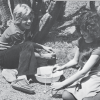
Desert Water Keepers
Source Institutions
In this outdoor, sunny day activity, learners experiment with paper leaf models to discover how some desert plants conserve water.

Moisture Makers
Source Institutions
In this outdoor activity, learners compare the moisture released from different kinds of leaves and from different parts of the same leaf, by observing the color change of cobalt chloride paper.

OBIS Oil Spill
Source Institutions
In this outdoor activity, learners simulate an oil spill using popcorn (both oil and popcorn float on water), and estimate the spill's impact on the environment.
